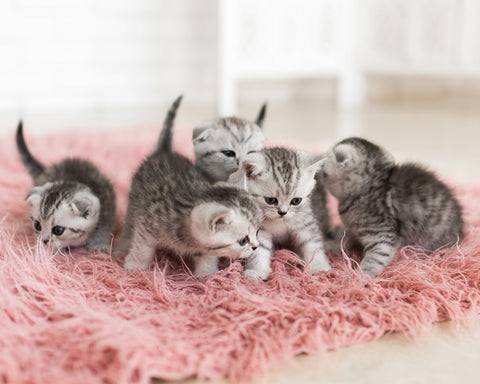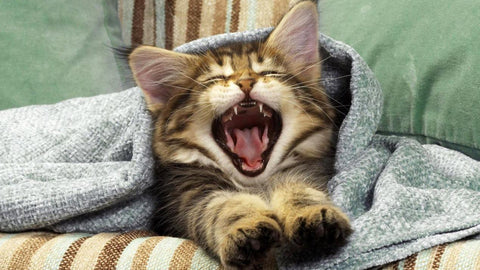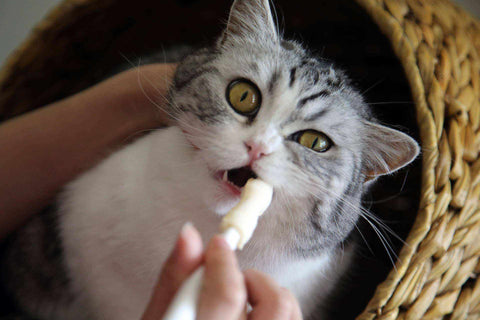01. Kitten's teeth and teething
Cats, like humans, have two sets of teeth in their lives. Their kitten teeth are also called primary teeth, deciduous teeth or deciduous teeth, and then permanent or adult teeth. The kitten was born without obvious teeth. At about three weeks of age, their teeth will begin to germinate. By the age of 4 months, all of their 26 deciduous teeth should be visible. When kittens are six to seven months old, all their 30 permanent teeth should have erupted.
Before adult teeth erupt through the gums, they begin to develop from the tooth buds located in the upper and lower jaws. As the adult teeth develop, they will begin to compress the roots of the deciduous teeth, and then things get a little more complicated. The teething process usually starts between 11 to 12 weeks of age. During this period, kittens may drool, have difficulty eating, and may have mild irritability. Most kittens have the urge to bite, usually blindly! At this time, the kitten will have a peculiar breathing smell. This smell is normal and will subside once the teething process is over.
While your kittens are teething, try to transfer their chewing to acceptable items, such as safe chew toys. Don't let them chew things that might damage your teeth.

02. The stranded deciduous tooth
When kittens are six to seven months old, they should have adult teeth. Sometimes, the kitten’s teeth do not fall out, and it continues to occupy the space that only the adult teeth have. When deciduous teeth do not fall off and make way for permanent teeth, they are called stranded deciduous teeth. Once found, it should be removed surgically to avoid dental problems.
When deciduous teeth and permanent teeth try to occupy the same space, the double-row teeth will be overcrowded and food will be packed between the teeth. Stuffed food can cause periodontal disease, which is an infection of the tissue that holds the teeth. In addition, a double set of teeth means that there will be a double set of roots. This will hinder the normal development of the alveolar and eventually cause inflammation of the gums. Once the remaining deciduous teeth are found, they should be surgically removed to avoid dental problems.

03. Home dental care and prevention
Toothpaste and brushing teeth
If you start brushing your kittens at a young age, they may be more receptive to brushing when they grow up and develop teeth. Make sure to use a toothbrush and toothpaste for cats. Do not use human toothpaste. Toothpaste is available in various cat flavors, including chicken and tuna. Find one that your kitten likes and try to brush their teeth at least three times a week, and if they want, they can brush it a few more times.
Oral gels, mouthwashes, and oral sprays When kittens get older, they may not be able to bear brushing their teeth. Some animals, especially those with delicate gums, cannot tolerate brushing their teeth, but prefer to use gel, mouthwash or oral spray. These products will remove plaque deposits on the surface of the teeth. They are not helpful in removing food particles in the gum sockets, but they may be a good product second only to tooth brushing. These products are best used every day.
The purpose of home dental care for kittens early is to prevent them from developing periodontal disease after they grow up. At some point in their lives, a veterinarian’s professional cleaning may be necessary, but incorporating the kitten’s dental care routine into your daily schedule may reduce the number of cleanings needed in the future.























